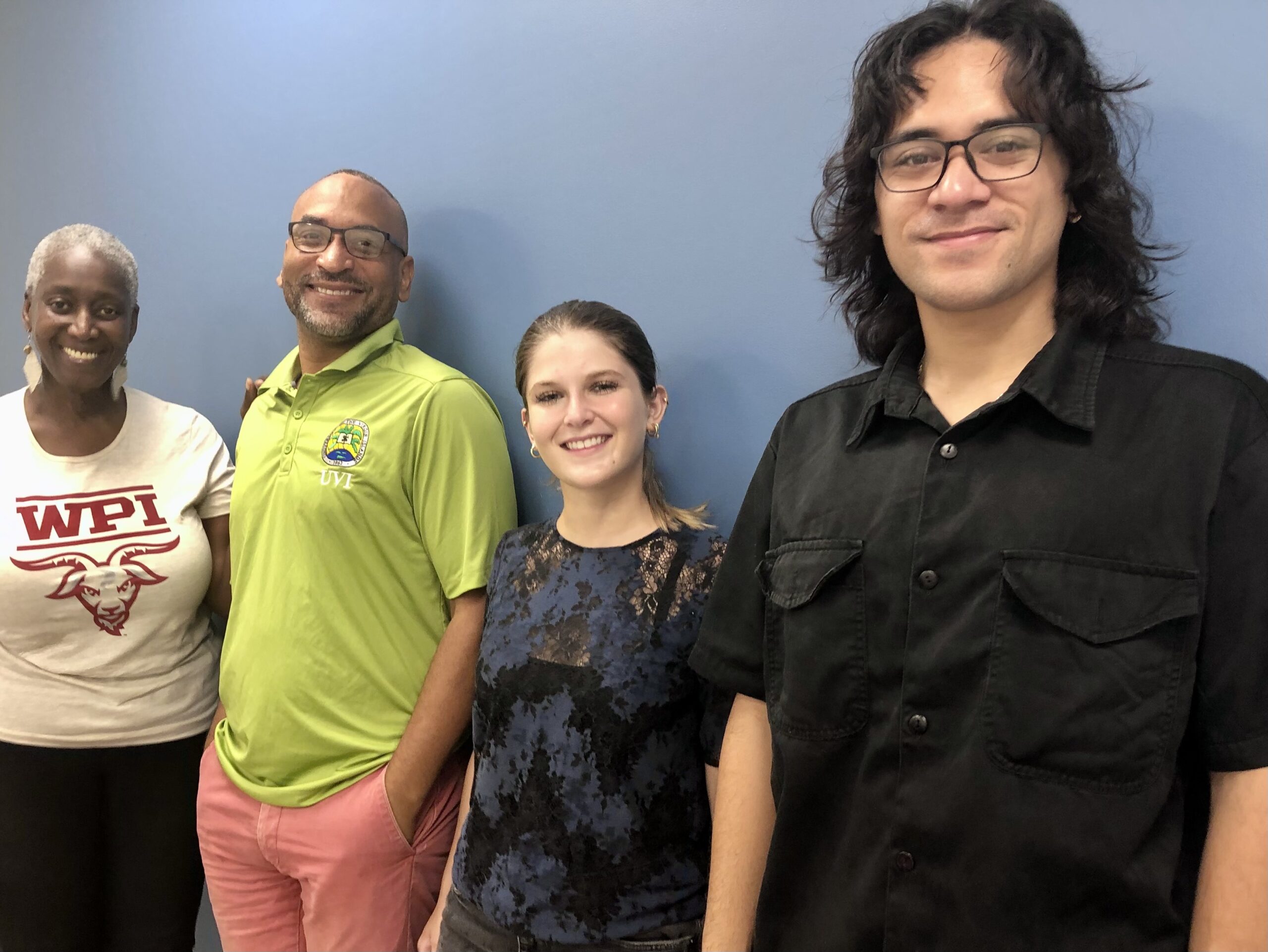
For several years, researchers at the University of the Virgin Islands have explored the effects of climate change on the environment. This year, those studies added a new perspective thanks to a team of visiting students from Massachusetts.
Since January, two graduate students from Worcester Polytechnic Institute (WPI) have applied what they’ve learned in the social sciences to measure how climate change affects Virgin Islanders. What they learn from interviews carried out as part of their field studies will help explain how well their subjects are coping with changing climate conditions.
The Community Climate Adaptation degree program is designed to produce professionals who can help populations come up with strategies to adapt to those changes. Visiting students Jonathan Chang and Sol Geisso say they have carried out 41 interviews with a cross-section of residents, policymakers and leaders from the nonprofit sector as part of their fieldwork.
“We are in the social sciences, so we are not necessarily trying to quantify any of the information we’re getting,” Geisso said. “The goal is to get a better idea of where people are at in terms of climate adaptation, what their thoughts are and what their worries are.”
The answers from the interviews are then transcribed and analyzed, helping Geisso and Chang identify their subjects’ concerns and vulnerabilities and what they’d like to see addressed first to mitigate the changes brought on by climate change.
When asked which of the 41 interviews stood out the most, the visiting students said that the point of their studies was not to single out any particular subject.
“We are identifying themes in what we’ve heard, and we’re coming up with themes and subthemes within that, and then we’re going through all of the transcripts and highlighting different areas of the text where we see that theme come up. Then we can organize the information by theme and see that most people really cared about this; a lot of people mentioned this as one of their main concerns,” Geisso said.
A similar study was carried out in Puerto Rico by another student from WPI several months ago, the students said.
UVI’s Caribbean Green Technology Center is hosting the students during their studies in the Virgin Islands. Director Gregory Guannel says their work will help the Caribbean Climate Adaptation Network fill existing data gaps. Through the network UVI works in collaboration with the University of Puerto Rico and a number of mainland-based universities.
“The point is to understand some of the issues, to understand some of the processes, and then once you know this issue is important for people, once you have quantified that issue a little better, then you can think about solutions,” Guannel said.
When their work is done, some of the climate adaptation data will be included in the information gathered by the network. The Green Technology Center’s director said that work is important to give researchers a better picture of an environment under pressure from a changing climate.


